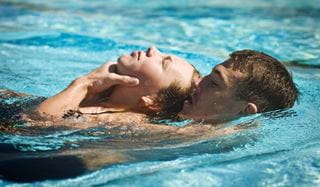Aquatic rescuers putting themselves at risk
Some alarming research has come to light in relation to unintentional fatal drowning as a result of performing an aquatic rescue. The research by James Cook University and Royal Life Saving Australia, published in the
Australian and New Zealand Journal of Public Health, compared the previous aquatic rescue experience of people who undertook rescues with data on rescue-related drownings in the 10-year period to December 2015.
Rescues are generally regarded as something undertaken by trained lifesavers or lifeguards; however, many rescues are performed by bystanders. Unfortunately, general members of the public may not have the necessary skills or experience involved in undertaking a rescue and can end up drowning themselves. This is known as aquatic victim instead of rescuer (AVIR) syndrome.
Between 1 January 2006 and 31 December 2015, a total of 51 people fatally drowned while performing an aquatic rescue in Australia – an average of five people each year. Over half of those who drowned were trying to rescue a family member. The majority (82%) were males, and the most common location for the attempted rescue was at the beach.
While the research demonstrated that many fatal drownings are prevented by aquatic rescues and that bystanders – alongside lifeguards and lifesavers – play an important role in drowning prevention, it’s not without risk to the rescuer. This is particularly true for those without training, who may act on impulse to save someone they love without regard for their own safety.

Although it’s always important to
consider your own safety first, this can easily be forgotten in the moment when a family member is in trouble. This highlights the need for more people to be trained in how to undertake safe rescues and provide resuscitation.
Royal Life Saving WA offers several lifesaving programs, central to which is the Bronze Medallion award. This award has been operating for over 100 years and holders of the Bronze Medallion are recognised as having gained the minimum standard as a qualified lifesaver. Learn more about how to enrol in the Bronze Medallion course below, and be ready to help save a life while preserving your own!
